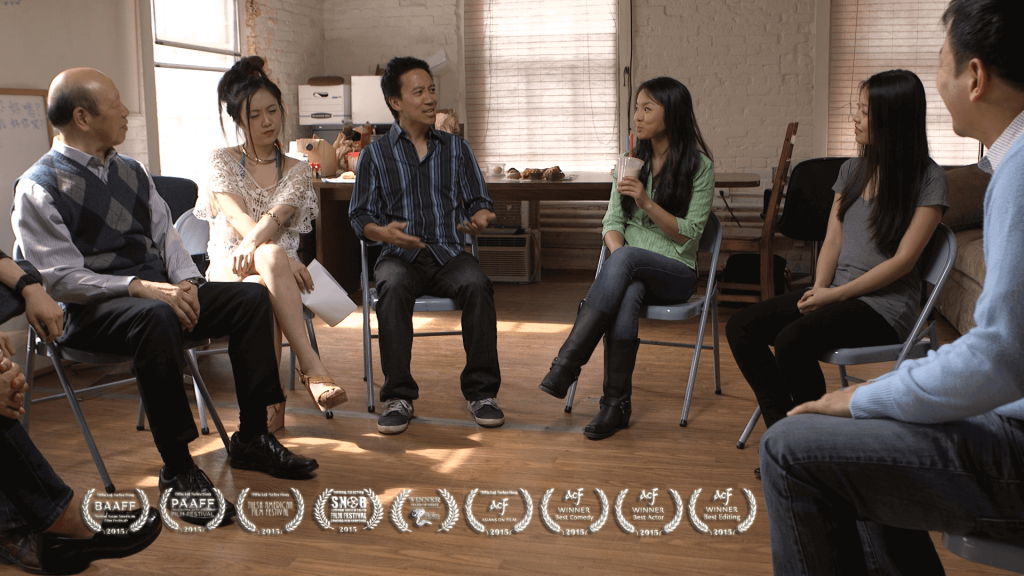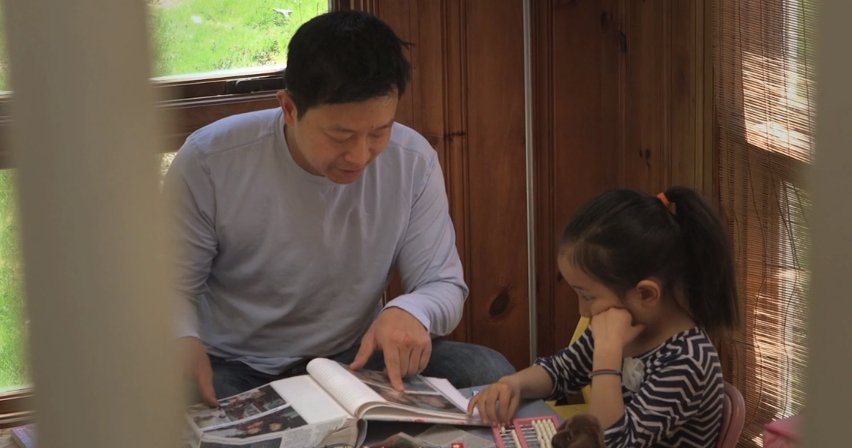
We’ve finally entered December of 2015, and I have one end-of-the-year prediction to make: expect a deluge of year-in-review think pieces calling 2015 a Renaissance Year for the Asian American actor. Hell, a lot of these articles have already been written. There’s this one. And, this one. Oh, and this one. Hell, I’ll probably even write one before this year is out.
It’s safe to say that if you’re an Asian American who cares about seeing Asian American actors get work, 2015 was the year for you. Fresh Off The Boat is midway through their critically acclaimed second season and celebrating news of a full season order. In contrast to the multi-cam format of FOTB, Ken Jeong debuted a refreshingly conventional family sitcom in Dr. Ken, bringing ABC’s Asian American-led primetime sitcom offerings to two. On Sundays, ABC also airs Quantico, which stars the impeccably-coifed Priyanka Chopra as an FBI recruit- turned-agent- turned-fugitive (check out recurring guest contributor Lakshmi Gandhi’s weekly recaps of Quantico every Monday morning right here on Reappropriate). And, over at Netflix, Aziz Ansari stars in Master of None, a show he co-created with producer Alan Yang.
But what if you’re an Asian American actor whose name isn’t Ken Jeong or Aziz Ansari? For these folks, Hollywood is still a tough place to find work, where few decision makers can imagine an Asian face being worn by anyone who isn’t the nerd, the ninja, the prostitute, the gangster, or the foreigner.
Now, a really fantastic independent short film — East of Hollywood — uses comedy to explore what it’s really like being a struggling Asian American actor in Hollywood.

Styled as a mockumentary, East of Hollywood stars actor and producer Michael Tow (R.I.P.D., Unfinished Business) as Ken, a fourth-generation Chinese American actor who finds himself trapped in an endless cycle of callbacks to play walk-on roles as Asian archetypes. Even though he’s tired of the schlock, Ken is also a newly-single dad with a young daughter. So, when he learns of an audition for a part as a series regular on a new sitcom (“Kung-Fu Mom”) playing a stereotypical kung-fu master-slash-love interest, Ken decides to give it all one more shot even though he’s only been learning Mandarin for two weeks and doesn’t know how to throw a punch.
In frustration, his agent (played by East of Hollywood writer and director, Chris Caccioppoli) suggests that Ken go to a workshop run by Beatrix, portrayed by a hysterical and scene-stealing Celeste Olivia (Mystic River, The Company Men)). Having failed to break into Hollywood because she is too ethnically ambiguous, Beatrix now helps other 2+-generation Asian American actors adopt some emergency “Orientification” to help them land a coveted audition callback for the few roles that Asian actors are ever considered for. There, Ken and other hopeful actors learn how to assume the role of “the Asian that non-Asians think Asians are” (my favourite line of the film), complete with lessons on how to mimic a stereotypically thick Asian accents and proper form for the Asian squat. In the midst of all this, Kens finds himself falling for his Mandarin instructor, fellow actor and former dancer, Ryan (Danni Wang (Blacklist, Madame Secretary)).
East of Hollywood is an enjoyable, laugh-out-loud, awkward-funny short film with a clear, thought-provoking point of view. It offers an incisive criticism of mainstream Hollywood’s implicitly racist structures of power, where the decision to create or deconstruct racial stereotypes lies in the hands of an entrenched Old (White) Boy’s Network of writers, producers, directors, and casting companies, many of whom lack the imagination, motivation or courage to rise above the residue of Old Hollywood racial stereotypes that continue to permeate contemporary mainstream filmmaking. This is the culture of racial insensitivity that Asian American actors and other actors of colour navigate on a daily basis: where ethnic pigeonholing is par for the course, and where there’s no right way to respond when the casting director asks for a second take in a “more authentic accent”.
Indeed, East of Hollywood found its genesis after just such a real-life casting meeting. Writer/director Chris Caccioppoli was inspired to create East of Hollywood after challenged by East of Hollywood star Michael Tow during a casting meeting for an earlier film. Caccioppoli writes in his Director’s Statement:
While casting my feature film, The Cocks of the Walk, I found myself on the wrong side of the equation. I had based the script on my own experience playing Badminton, and as a result, I needed to cast many Asian American actors, all of whom came prepared to audition in an accent and portray a stereotype. Not because they wanted to, but because it’s what they assumed I wanted to see. And they were right. But why did I need these stereotypes in my movie? What did it add to the final product? And more so, why did that seem more acceptable than asking any other race to become a caricature on film?
I couldn’t answer any of these question. Perhaps I was just subconsciously influenced by what I was exposed to in the media. After all, it seems that aside from misrepresentation there is very little representation at all for Asian Americans in Hollywood. And as I got to know the actors in my feature on a more personal level, I discovered they all had the same story. They all had to pretend to be more Asian to get a role, despite most of them being born and raised in America and not knowing a word of (insert language of choice here). The most vocal about the topic, and the person with whom I went on to make this film, Michael Tow, shared the desire to shed light on this often overlooked problem. And so, East of Hollywood was born.
I got the chance to work with some amazingly talent actors who simultaneously exposed and shattered stereotypes with their performances. Each actor not only created hysterical characters but brought them to life with improvisations that could have only come from their own experiences. I hope this film can do its part to keep the momentum going and creating more opportunities for equal and fair representation in Hollywood. And I hope it makes a few people laugh while doing so.
East of Hollywood premiered earlier this fall at the Boston Asian American Film Festival (BAAFF), where it won Best Narrative Short, and was an official selection at the Philadelphia Asian American Film Festival and other festivals throughout the country. It has won Best Comedy, Best Actor, and Best Editing at the Asians on Film Festival, as well as Best Screenplay and Best Actor at the Tulsa American Film Festival, and Best Mid-Length Film at the New England Indiefest (formerly SNOB).
Stay tuned to the film’s website and Facebook for more information on how you can catch a screening near you!
Update (12/6/2015): Corrections made to the paragraph on the awards East of Hollywood has won.
